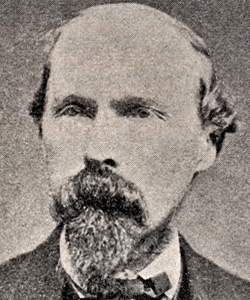Samuel Alexander Mudd (American National Biography)
Scholarship
Since Mudd's death, historians have argued over Mudd's innocence, and many of his descendants have tried to restore his reputation. In 1990 the doctor's grandson Richard Dyer Mudd requested that Mudd's case be reviewed by the Army Board of Correction of Military Records, which two years later recommended that the conviction be removed from army records because he was tried improperly, before a military commission instead of in civilian court. The recommendation was rebuffed by army administration, and in 1997 Richard Mudd brought the issue before the U.S. District Court in Washington, which again left the decision with the army. In March 2000 the army ruled that the military commission was justified in trying and convicting the alleged conspirator, citing Ex Parte Quirin (1942), which held that a "military trial was justified . . . [for] those accused of committing offenses against the law of war" (Oxford Companion to the Supreme Court of the United States, ed. Kermit L. Hall [1992], p. 697). Mudd's case fit this definition, they ruled, because the assassination of the president was essentially a military act and the city of Washington, D.C., was at the time under "threat of invasion." Unfortunately the army's ruling shed no new light on Mudd's guilt or innocence, and the movement by Richard Mudd to clear his grandfather's name continues: two newsletters devoted to the efforts to exonerate Mudd still regularly circulate. But, as the truth ostensibly remains unrevealed more than a century later, what role, if any, Mudd played in the assassination of the president who held the country together during its most difficult time will likely never be known for certain.
Stacey Hamilton, "Mudd, Samuel Alexander," American National Biography Online, June 2000, http://www.anb.org/articles/20/20-01833.html.





